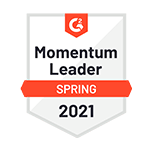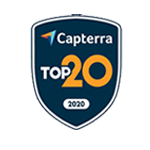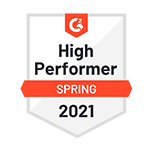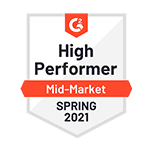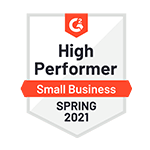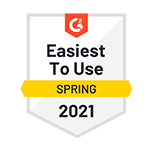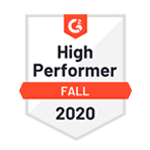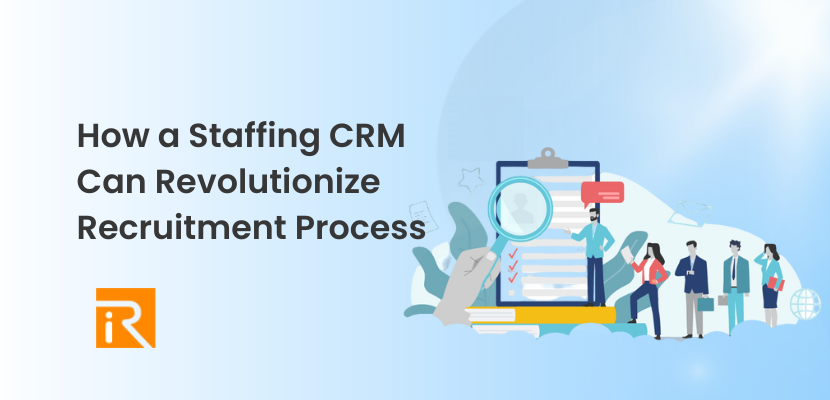
The staffing industry has grown significantly over the years and is now a multi-billion dollar industry. In order to manage the various processes involved in staffing, it is important to have an efficient system in place. That’s where staffing CRM comes in.
What is staffing CRM?
Staffing CRM, or customer relationship management, is a software solution designed to help staffing agencies manage their relationships with clients, candidates, and employees. The system centralizes all interactions with stakeholders, allowing agencies to better track and manage key data points such as candidate resumes, job orders, and client feedback.
Benefits of Staffing CRM
Staffing CRM (Customer Relationship Management) is a powerful tool that can help streamline the entire recruitment process. It offers several benefits to recruiters and staffing agencies, including improved candidate sourcing, streamlined job posting, efficient resume tracking, and improved client management.
Improved Candidate Sourcing
Staffing CRM makes it easier to source candidates from various channels, including job boards, social media, and professional networking sites. The system’s built-in parsing tools allow it to extract key information from resumes and auto-populate candidate profiles, saving recruiters time and effort. This feature also enables recruiters to find relevant candidates faster and more efficiently than manual sourcing methods.
Streamlined Job Posting
With Staffing CRM, recruiters can post job orders across multiple job boards with just a few clicks. The system can automatically track responses and match candidates to open positions, reducing the time and effort required for manual job matching. This feature saves recruiters time and enables them to focus on more critical tasks, such as candidate screening and interview scheduling.
Efficient Resume Tracking
With Staffing CRM, recruiters can easily track the status of candidate resumes, from submission to placement. The system provides an organized, centralized location for resumes, which can be quickly accessed by recruiters at any time. This feature also allows recruiters to quickly identify which candidates are the best fit for open positions, making the selection process faster and more efficient.
Improved Client Management
Staffing CRM allows agencies to centralize all interactions with clients, including job orders, invoices, and feedback. The system can generate customized reports on client activity, allowing agencies to identify areas for improvement and build stronger relationships with their clients. This feature also enables recruiters to provide better customer service to clients by quickly responding to their needs and providing timely updates.
Key Features of Staffing CRM
Staffing CRM comes with a range of features designed to improve the efficiency and effectiveness of staffing agency operations. Some of the key features of staffing CRM include:
Candidate Database
One of the most important features of Staffing CRM is its ability to create and maintain a comprehensive database of candidates. The system allows recruiters to capture and store a candidate’s work history, skill set, and other key information. Moreover, the system can automatically parse resumes and extract important data points, such as education, work experience, and skills, making it easier to identify qualified candidates for open positions. With this feature, staffing agencies can easily search, filter, and sort through their candidate pool to find the best match for a specific job.
Job Order Management
Another key feature of Staffing CRM is its job order management functionality. The system allows agencies to manage job orders from creation to fulfillment, including automated job posting, resume matching, and candidate tracking. Recruiters can easily create new job orders, and the system will automatically post the job on various job boards, social media sites, and the agency’s website. The system will also search through the candidate database and match the best-fit candidates to the job order. With candidate tracking, recruiters can easily monitor the status of each candidate’s application and move them through the recruitment pipeline until the job order is fulfilled. Staffing agencies can also generate customized reports on job order activity, enabling them to identify areas for improvement and optimize their recruiting efforts.
Client Management
Staffing CRM also allows staffing agencies to manage their interactions with clients more effectively. The system enables agencies to centralize all interactions with clients, including job orders, invoices, and feedback. With this feature, recruiters can quickly access all the necessary information about a client and their specific job orders. The system can also generate customized reports on client activity, allowing agencies to identify areas for improvement and build stronger relationships with their clients.
Email Integration
Email integration is another key feature of Staffing CRM. The system can integrate with email platforms such as Outlook and Gmail, allowing recruiters to easily track and manage candidate and client communications within the system. With email integration, staffing agencies can keep track of all email correspondence related to specific job orders, candidates, and clients. Recruiters can also use the system to send emails to candidates and clients, eliminating the need to switch between different software applications.
What is the difference between staffing CRM and ATS?
Applicant Tracking System (ATS) and Staffing CRM (Customer Relationship Management) software are two distinct systems used by staffing agencies to improve their recruitment processes. While both systems are complementary, they serve different purposes. The following are the key differences between ATS and Staffing CRM software:
-
Purpose
The primary purpose of an ATS is to manage the candidate’s application process from start to finish. It helps recruiters manage job postings, resumes, screening, and scheduling interviews. The main purpose of Staffing CRM software is to manage client, candidate, and employee relationships. It helps recruiters stay organized by centralizing all information in one place.
-
Scope
ATS software is designed to manage the hiring process for a single company, while staffing CRM software is designed to manage the recruitment process for multiple clients. ATS focuses primarily on in-house recruitment teams, while staffing CRM software is designed specifically for staffing agencies.
-
Functionality
ATS software provides features such as resume parsing, job posting, interview scheduling, and candidate screening. It helps recruiters manage candidate data and track their progress through the recruitment process. Staffing CRM software provides features such as client and candidate management, lead tracking, automated email marketing, and invoicing. It helps staffing agencies manage their business relationships and communication.
-
Data Management
ATS software manages candidate data such as resumes, job history, and qualifications. Staffing CRM software manages client and candidate data such as contact information, work history, and employment status. While both systems manage data, they focus on different types of information.
-
Integration
ATS software can integrate with other systems such as HRIS (Human Resource Information System), job boards, and social media. Staffing CRM software can integrate with marketing automation tools, financial software, and other business management tools. Both systems can integrate with other systems to provide a comprehensive solution.
In summary, ATS and Staffing CRM software serve different purposes, but when used together, they can help staffing agencies manage their recruitment process more effectively. ATS focuses on managing the candidate’s application process, while staffing CRM software focuses on managing client and candidate relationships. By combining the strengths of both systems, staffing agencies can streamline their recruitment process and improve their overall business processes.
Application of staffing CRM
It offers several features that make the entire recruitment process more streamlined and effective.
Sourcing Candidates
One of the primary advantages of using staffing CRM is that it allows staffing agencies to source candidates from a variety of sources. This includes job boards, social media, and employee referrals. Staffing CRM helps to keep track of candidate information, making it easier to source candidates in the future. It allows recruiters to quickly identify and reach out to potential candidates, saving valuable time and resources.
Managing Candidate and Client Data
Staffing CRM helps to store candidate and client data in one central location, making it easy to access information and make informed decisions. It eliminates the need for manual data entry, reducing errors and ensuring data accuracy. Staffing agencies can easily search and filter candidate and client information, and quickly retrieve the data they need.
Automating Candidate Communication
Staffing CRM automates candidate communication, making it easier to keep candidates informed about the recruitment process. It allows recruiters to send automated emails, text messages, and other communications to candidates, ensuring they are updated on the status of their application. Additionally, it helps to build relationships with candidates, which is crucial for a successful recruitment process.
Maintaining Client Relationships
Another benefit of staffing CRM is that it helps to maintain client relationships. By keeping track of client interactions and providing a platform for communication, staffing agencies can better understand client needs and preferences. This helps to build long-lasting relationships with clients, leading to repeat business and referrals.
Filling Job Orders
Staffing CRM helps to fill job orders quickly and efficiently by matching the right candidates with the right job. It uses advanced algorithms and AI to match candidates to job orders based on their skills, experience, and other factors. This streamlines the recruitment process, saving time and money.
Managing Placements
Staffing CRM helps to manage placements by keeping track of placement information and providing a platform for communication between the staffing agency, candidate, and client. This ensures that all parties are informed about the placement and any related details, such as start dates and job responsibilities.
Tracking Performance and Analytics
Finally, staffing CRM provides reporting and analytics capabilities, allowing staffing agencies to track the performance of their recruitment process and identify areas for improvement. This includes metrics such as time to hire, cost per hire, and candidate satisfaction. With this data, staffing agencies can make informed decisions and continually improve their recruitment process.
Conclusion
In conclusion, Staffing CRM is an essential tool for staffing agencies. It helps to manage the relationships between staffing agencies and their clients, candidates, and employees. It makes the recruitment process efficient and helps to fill job orders faster. The best staffing CRM software is RecruitBPM, which provides a complete solution for the staffing industry, including job posting and applicant tracking, resume parsing, communication management, reporting and analytics, collaboration tools, and integrations.
FAQs
1- What is a staffing CRM and how is it different from a regular CRM?
Staffing CRM is a software solution specifically designed for staffing agencies to manage and streamline their recruitment processes. While regular CRM software focuses on managing customer interactions, staffing CRM is tailored to meet the specific needs of the staffing industry. It offers features such as candidate and client management, resume parsing and matching, job posting and distribution, and scheduling and task management.
2- What are the benefits of using staffing CRM?
Using staffing CRM can bring several benefits to staffing agencies. This includes improved candidate and client management, increased productivity and efficiency. In addition it offers better communication and collaboration, reduced administrative workload, and enhanced reporting and analytics.
3- Can staffing CRM integrate with other HR and recruitment tools?
Yes, staffing CRM can integrate with other HR and recruitment tools to provide a comprehensive solution for staffing agencies. It can integrate with tools such as applicant tracking systems, background check providers, payroll systems, and job boards.
4- How much does staffing CRM cost?
The cost of staffing a CRM can vary. It depends on the features and functionalities of the software, the number of users, and the subscription plan. Some providers offer a free trial. Others offer customized pricing based on the agency’s needs.
5- Is staffing CRM easy to use?
Staffing CRM is designed to be user-friendly and intuitive, with a user interface that is easy to navigate. However, the ease of use may vary depending on the complexity of the software and the level of customization required by the staffing agency. Most providers offer training and support to help users get started with the software.








